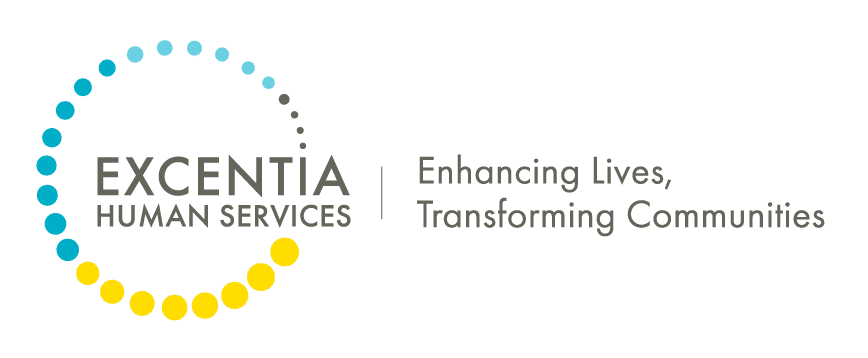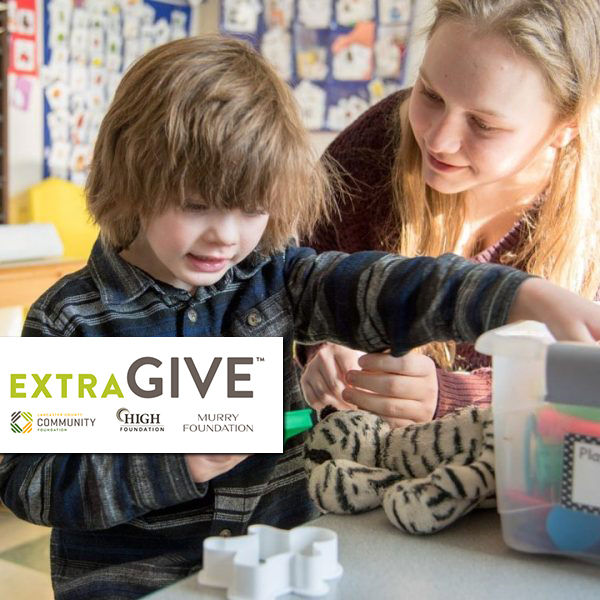The S. June Smith Center has an inclusive preschool program. Our classroom provides an inviting, welcoming and nurturing environment that includes all children from the neighborhood community, regardless of their abilities.
Inclusive environments are also supported by the National Association for the Education of Young Children (NAEYC).
NAEYC (ideal I.1.8-ethical responsibility to children) supports the right of each child to play and learn in an inclusive environment that meets the needs of children with and without disabilities.
Our preschool classrooms provide the type of environment supported by the NAEYC every day. We try to help people to see the “possibility” in individuals instead of the “disability”.
Meeting a Child’s Learning Needs through Diverse Teaching Strategies
All children in our inclusive preschool classrooms reach their developmental potential with the guidance of teaching and support staff who use diverse teaching strategies which target the strengths and learning styles of each child. This type of instruction provides a framework for teaching, learning, and assessment that not only helps us meet the developmental and academic needs of our students but also inspires feelings of safety, comfort, excitement, motivation and satisfaction in our diverse classrooms.
We often hear from parents that Kindergarten teachers are impressed with how well the children from our program are able to draw their names and print their letters! We use the “First Strokes Handwriting Program” in our preschool classrooms. This is a sensory-based approach to learning to make the letter shapes. All our students benefit from this easy and fun approach to learning to draw their letters. What’s even more exciting is watching the children work together to create large letter-of-the-week designs using blocks or other theme-related objects as we learn our alphabet.
Creating Attitudes of Mutual Respect in Children
An inclusive preschool classroom provides an early awareness of diversity and the needs of others. These shared preschool experiences enable children without disabilities to accept others by appreciating likenesses and helping to understand differences.
Throughout our school year, we provide activities as part of a unit called: “We Are All Alike… We Are All Different” Children work together in pairs to discover how they are alike and how they are different. This activity and simply participating in an inclusive environment helps to create mutual respect among all children.
As a classroom teacher, I know that inclusion has been successful when the children without a disability bring toys, games or even adapted learning materials over to their classmates who cannot walk or move independently throughout the classroom without being asked to do this by an adult. It demonstrates that they understand this particular friend likes to play with toys or games just as much as they do, but simply need assistance in order to get the toy or game. I also like when the families in our classrooms get together for pre-arranged play dates or birthday celebrations and include everyone…even those children with more involved needs.Throughout our school year, we provide activities as part of a unit called: “We Are All Alike… We Are All Different” Children work together in pairs to discover how they are alike and how they are different. This activity and simply participating in an inclusive environment helps to create mutual respect among all children.
Inclusion Encourages Development of Social Skills in Children
Children without special learning or developmental needs develop compassion for their friends and learn to advocate for these friends as they go through shared life and community experiences together.
The benefits of inclusion for children with special learning and developmental needs include:
- nurtures self-esteem
- social interaction with peers facilitates communication and the development of social skills
- children acquire genuine friendships and life experiences within their community
- children develop self-advocacy skills needed throughout their lives
At S. June Smith Center we have been practicing inclusion at the preschool level since 1996. I have observed the development of true friendships in those years which have lasted through the child’s formal education years. I have observed classmates defending others whom are targeted for bullying once they move on to school age programs, and know that mutual respect and advocacy skills –learned at an early age—have been of great benefit to these children who have participated in an inclusive preschool classroom. It also creates a feeling of success when I hear children without disabilities explaining to others (usually an adult) why one of their classmates /friends uses a Big Mack switch or an iPad to “talk” with others in the classroom or in the community. Inclusion works!

